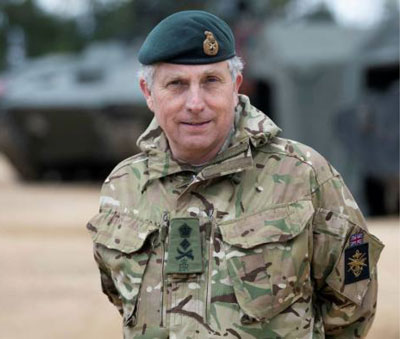London
The UK’s outgoing chief of the defence staff told MPs late Tuesd MPs on the House of Commons defence committee, Carter, who steps down as the UK’s top military official at the end of November, said: “I think it is too early to say that defeat has occurred. Victory here needs to be measured in the results and not some great military extravaganza.”
He added: “Taliban 2.0 is different. There are a lot of people in Taliban 2.0 who would like to govern in a more modern way, but they are divided among themselves, as political entities so often are.
“If the less repressive elements end up gaining control then I think there is no reason to suppose that Afghanistan over the next five years might not turn out into a country that is more inclusive than it might have otherwise.”
He defended western intelligence failings that underestimated the strength of the Taliban as it seized control within weeks, blaming a rapid shift in the allegiances of local warlords.
“What was going on in the provincial capitals — Herat, Lashkar Gah, Kandahar — was that millions of dollars were changing hands”, he said. “What happened there was that allegiance changed over a period of a week. It is very hard to monitor that.”
Britain’s most senior military leader defended “bullish” claims he made previously that the Afghan government would hold on to power following the removal of Western troops, saying more pessimistic assessment at the time would have undermined the country’s then president Ashraf Ghani.
“The plan was to try to get the Afghan government to hang in and hold it together,” he said. “I am one of the voices they listen to, more so probably than any other foreigner other than the odd American.”
Challenged on why he had warned against referring to the Taliban as “the enemy” at the time of the evacuation of troops, Carter said it was to protect those British forces still on the ground.
He admitted there needed to be a “fundamental cultural shift” following a meeting between defence secretary Ben Wallace and military top brass on Monday to discuss bullying, harassment and sexual assault within the armed forces.
“Part of the reason that we encourage a laddish culture is that ultimately our soldiers have to go close and personal with the enemy.
What you have got to try and do is to square both these outputs,” he added. Carter also called for the problems threatening the future of the £5.5bn Ajax armoured vehicle programme to be “properly attended to”.
Noise and excessive vibration inside the armoured vehicles during trials have prompted concerns of lasting hearing damage to their crews.
The department is waiting for the results of independent trials before deciding whether to proceed with the programme. Five soldiers whose hearing was affected during the trials have been medically discharged from the army.— Agencies










